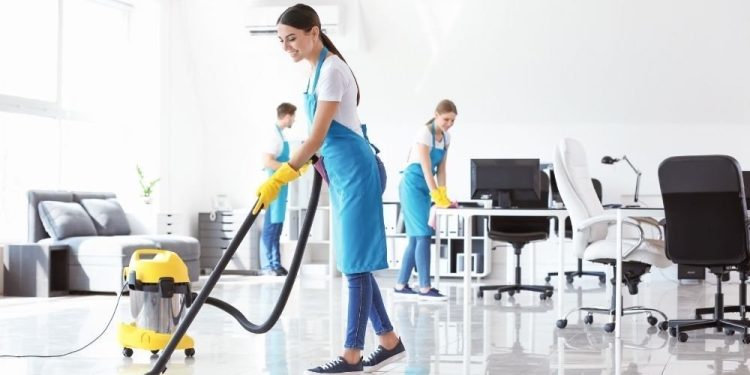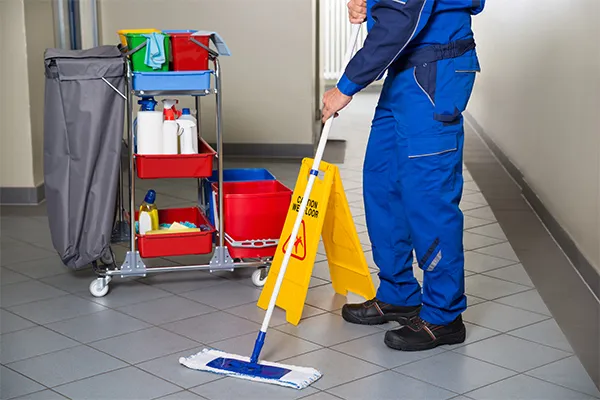Unlocking Business Potential: How Professional Cleaning Transforms Your Workplace Envi-ronment

Introduction
The decision to invest in professional janitorial services might seem mundane—a simple operational necessity rather than a strategic business choice. Yet this perspective dramatically undervalues the profound impact that environmental cleanliness has on virtually every aspect of organisational success. From employee productivity and wellness to client perception and brand reputation, the quality of your workplace environment silently shapes critical outcomes that directly affect your bottom line.
The Hidden Costs of Inadequate Cleanliness
When businesses attempt to economise on professional cleaning, they often encounter unexpected costs that far outweigh the perceived savings. The financial implications extend far beyond the immediate visual impact.
Research from Singapore’s workplace health institutes reveals:
- Employees in poorly maintained environments take 39% more sick days annually
- Office keyboards typically harbour 7,500 bacteria per square centimetre
- Air quality in inadequately cleaned spaces can contain 5-7 times more pollutants than outdoor air
- COVID-19 has heightened awareness, with 86% of employees now citing workplace cleanliness as “very important” to their job satisfaction
“The difference between surface cleaning and true sanitisation becomes painfully evident during seasonal illness peaks,” notes a leading Singapore janitorial services consultant. “Organisations that prioritise thorough cleaning protocols consistently report fewer workplace absences.”
Beyond Aesthetics: Health Impacts That Matter
Respiratory Wellness and Cognitive Function
The connection between air quality and cognitive performance has been extensively documented in workplace studies. Dust accumulation, poor ventilation, and improper cleaning of HVAC systems create environments that subtly impair mental acuity.
A Singapore-based environmental health researcher explains: “Even moderate reductions in indoor air quality can reduce cognitive function by 15-50%, affecting decision-making capabilities, response times, and strategic thinking—precisely the high-value mental activities that drive business success.”
Professional cleaning regimens address these concerns through:
- Regular deep-cleaning of carpets that trap airborne particles
- Proper sanitisation of ventilation systems
- Use of HEPA-filtered vacuum equipment
- Selection of cleaning agents that minimise harmful VOCs
- Implementation of dust-reduction protocols
Psychological Dimensions of Cleanliness
The Subtle Power of Environmental Order
The psychological impact of workplace cleanliness extends beyond conscious awareness. Environmental psychology research demonstrates that orderly spaces significantly influence both mood and productivity.
“Our research consistently shows that environmental order creates a foundation for mental order,” explains a Singapore workplace psychology expert. “When surroundings are visibly clean and organised, employees demonstrate measurably improved focus, reduced stress biomarkers, and enhanced creative problem-solving.”
These benefits manifest in:
- Reduced workplace anxiety levels
- Improved team cohesion and collaboration
- Enhanced pride in the workplace
- Higher self-reported job satisfaction
- Improved retention rates
Professional Standards: What Distinguishes Excellence
Technical Expertise Beyond Surface Appearance
Professional janitorial services employ scientific approaches that extend well beyond the capabilities of casual or untrained cleaning staff. This expertise includes:
- Material-specific cleaning protocols that preserve asset longevity
- Cross-contamination prevention techniques
- Proper dilution and application of cleaning agents
- Systematic approaches that ensure comprehensive coverage
- Knowledge of industry-specific compliance requirements
“The professionalisation of cleaning has accelerated dramatically, with techniques now incorporating microbiological understanding that was previously limited to healthcare environments,” notes a Singapore janitorial training specialist.
Technology Integration in Modern Cleaning
Data-Driven Approaches to Environmental Management
The most advanced janitorial services now leverage technological innovations that transform cleaning from an art to a science. These advancements include:
- ATP testing to objectively measure surface cleanliness
- IoT sensors that monitor usage patterns to optimise cleaning schedules
- QR-code verification systems ensuring systematic coverage
- Digital documentation of cleaning activities for compliance purposes
- Analytical software predicting maintenance needs before they become apparent
“The integration of data analytics into cleaning operations represents a paradigm shift,” explains a Singapore cleaning technology consultant. “We now quantify cleanliness in ways that enable continuous improvement and objective assessment.”
Sustainability: Responsible Cleaning for Forward-Thinking Organisations
Balancing Efficacy with Environmental Stewardship
Modern professional cleaning has reconciled the previously competing priorities of thorough sanitisation and environmental responsibility. Advanced janitorial services now offer:
- Green-certified cleaning products with proven efficacy
- Water conservation techniques that reduce consumption by up to 70%
- Microfibre technologies that minimise chemical usage while improving outcomes
- Equipment with enhanced energy efficiency
- Waste reduction strategies throughout the cleaning process
“The misconception that environmentally responsible cleaning means compromised effectiveness has been thoroughly debunked,” notes a Singapore sustainability consultant. “Today’s green cleaning achieves superior results while dramatically reducing environmental impact.”
Selecting Excellence: What Distinguished Clients Should Demand
When evaluating professional cleaning partners, discerning organisations should require:
- Transparent quality measurement systems
- Staff training certification documentation
- Clear communication protocols
- Customised cleaning plans rather than one-size-fits-all approaches
- Evidence-based product selection rationales
Conclusion
The strategic advantage of impeccable workplace environments extends far beyond mere appearance. As the boundaries between health, psychology, productivity, and environmental stewardship continue to blur, forward-thinking organisations increasingly recognise that their approach to environmental management directly influences their most critical business outcomes. By viewing workplace cleanliness as a strategic investment rather than an operational expense, organisations position themselves for enhanced performance across virtually every metric that matters. The distinction becomes particularly evident when partnering with providers who combine technical expertise, technological innovation, and environmental responsibility in their approach to janitorial services.







